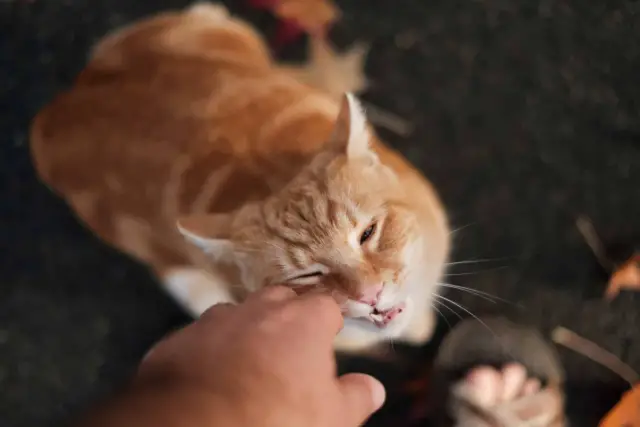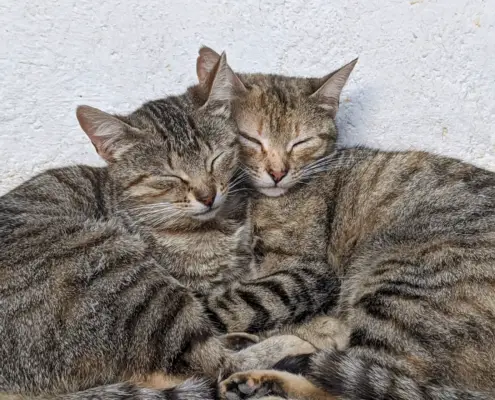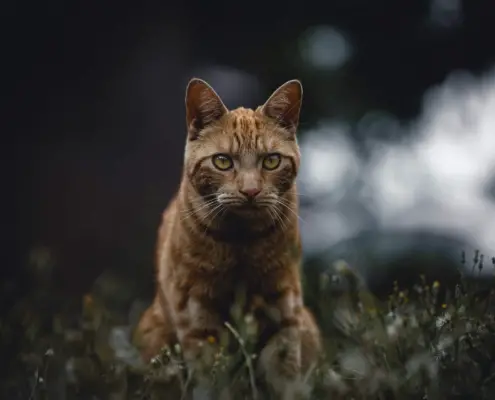
Cat breeding is a fascinating field that involves the deliberate mating of cats to produce specific breeds or improve certain traits. Behind every adorable and unique feline companion lies a skilled individual known as a cat breeder. These individuals play a crucial role in preserving and enhancing the diverse range of cat breeds we see today. But have you ever wondered what a cat breeder is called? In this article, we will unravel this mystery and explore the many facets of cat breeding.
The Role and Responsibilities of a Cat Breeder
Cat breeders are professionals who meticulously select and mate cats to create specific breeds or enhance desirable traits. Their primary responsibility is to ensure the health, well-being, and genetic integrity of the cats they breed. This involves extensive knowledge of feline genetics, health screening, and responsible breeding practices. Cat breeders also play a vital role in socializing and nurturing kittens, preparing them for their future homes.
Additionally, cat breeders are responsible for finding suitable homes for their kittens and educating potential owners about the specific needs and characteristics of the breed. They often provide ongoing support and guidance to ensure the well-being of the cats they have bred. It is important to note that reputable cat breeders prioritize the welfare of their cats above all else and adhere to ethical breeding practices.
Different Types of Cat Breeders
Within the world of cat breeding, there are various types of breeders, each with their own unique approach and objectives. Some breeders focus on creating new breeds or improving existing ones, while others specialize in preserving rare or endangered breeds. Let’s explore some of the different types of cat breeders:
1. Hobby Breeders: These breeders are passionate about a particular breed and engage in cat breeding as a hobby rather than a full-time profession. They may have a small number of cats and produce a limited number of litters each year. Hobby breeders often participate in cat shows and are dedicated to maintaining the breed standard.
2. Professional Breeders: Professional breeders are individuals who have made cat breeding their full-time career. They may specialize in one or multiple breeds and have a larger breeding program. Professional breeders often have a deep understanding of genetics and work towards improving the breed’s health and temperament.
3. Rescue or Shelter Breeders: These breeders focus on breeding cats from rescue or shelter backgrounds. Their goal is to find loving homes for cats in need and reduce the number of stray and abandoned cats. They often prioritize the rescue and rehabilitation of cats over specific breed traits.
Qualifications and Skills Required to Become a Cat Breeder
Becoming a cat breeder requires a combination of knowledge, skills, and dedication to the well-being of cats. While there are no specific formal qualifications required, certain qualities and experiences can greatly contribute to a successful breeding journey. Here are some essential qualifications and skills for aspiring cat breeders:
1. Knowledge of Feline Genetics: Understanding the basics of genetics is crucial for cat breeders. This knowledge allows them to make informed decisions when selecting mating pairs, predicting traits, and avoiding genetic disorders.
2. Experience with Cats: Prior experience working with cats, such as volunteering at shelters or catteries, can provide valuable insights into their behavior, care, and specific breed needs. This hands-on experience helps breeders better understand the needs of their cats and kittens.
3. Patience and Dedication: Cat breeding requires patience and dedication, as it can be a time-consuming and emotionally demanding endeavor. Breeders must be prepared to invest their time, energy, and resources into the well-being of their cats and the success of their breeding program.
The Importance of Responsible Cat Breeding
Responsible cat breeding is paramount to ensure the health and welfare of cats and the preservation of breed traits. Irresponsible breeding practices can lead to a multitude of issues, including genetic disorders, poor temperament, and overpopulation. Here are some key aspects of responsible cat breeding:
1. Health Screening: Responsible breeders prioritize the health of their cats by conducting appropriate health screenings and genetic testing to identify any potential hereditary diseases or conditions. This helps ensure that only healthy cats are used for breeding, reducing the risk of passing on genetic disorders to future generations.
2. Breed Standards: Breeders who adhere to responsible practices strive to maintain or improve the breed standard. This involves selecting cats that exemplify the desired characteristics outlined by recognized cat breed associations. By preserving breed standards, responsible breeders contribute to the overall integrity and recognition of the breed.
3. Ethical Treatment: Responsible breeders provide a nurturing and caring environment for their cats and kittens. They prioritize the well-being of their cats by providing proper nutrition, veterinary care, and socialization. Kittens are typically kept with their mother until they are ready to be placed in their new homes.
The Process of Cat Breeding
Cat breeding involves a systematic process that requires careful planning, selection, and management. While the specifics may vary depending on the breed and breeder’s objectives, here is a general overview of the cat breeding process:
1. Selecting Breeding Cats: Breeders carefully choose cats that possess the desired traits and characteristics for the specific breed. This involves considering factors such as breed standards, temperament, health, and genetic diversity.
2. Mating and Pregnancy: Once the breeding cats are selected, they are introduced for mating. Cats have a natural mating process, and breeders supervise and ensure the mating is successful. After successful mating, the female cat goes through a gestation period, typically lasting around 63 days.
3. Birth and Care of Kittens: When the time comes, the female cat gives birth to a litter of kittens. Breeders closely monitor the birth process and provide necessary assistance if needed. They ensure the kittens receive proper nutrition, warmth, and socialization to promote healthy development.
Challenges Faced by Cat Breeders
Cat breeding is not without its challenges. Breeders often encounter various obstacles that require patience, problem-solving skills, and adaptability. Some common challenges faced by cat breeders include:
1. Genetics and Health Concerns: Breeders must navigate the complexities of feline genetics to avoid inherited disorders and maintain genetic diversity within the breed. They also face the challenge of managing the health of their cats, including routine veterinary care and addressing any health issues that may arise.
2. Finding Suitable Homes: Responsible breeders invest significant time and effort into finding suitable homes for their kittens. They carefully screen potential owners to ensure the kittens will be well cared for and receive the attention they need.
3. Breeding Regulations and Standards: Breeders must stay updated on the regulations and standards set by recognized cat breed associations. Compliance with these standards ensures the integrity of the breed and facilitates participation in cat shows and competitions.
Ethical Considerations in Cat Breeding
Ethics play a vital role in cat breeding, and responsible breeders prioritize the welfare of their cats above all else. Here are some ethical considerations that breeders should keep in mind:
1. Avoid Overbreeding: Responsible breeders carefully plan their breeding program to avoid over-breeding. Overbreeding can lead to health issues, reduced quality of life for the cats, and contribute to the overpopulation of certain breeds.
2. Transparency and Honesty: Breeders should be transparent and honest about the breed’s characteristics, potential health concerns, and the responsibilities of cat ownership. This helps potential owners make informed decisions and ensures the well-being of the cats.
3. Collaboration and Mentorship: Ethical breeders actively collaborate and seek mentorship from experienced breeders. This fosters a supportive community where knowledge and best practices are shared, benefiting the welfare of cats and the overall improvement of breeds.
Resources and Organizations for Cat Breeders
Cat breeders can access a wealth of resources and support from various organizations dedicated to promoting responsible breeding practices. Some notable resources and organizations include:
1. The International Cat Association (TICA): TICA is one of the world’s largest cat registries, providing breed standards, educational resources, and hosting cat shows and competitions.
2. Cat Fanciers’ Association (CFA): CFA is another prominent organization that offers breeder resources, breed standards, and hosts cat shows and events.
3. Local Cat Breed Clubs: Many cat breeds have dedicated clubs that provide resources, networking opportunities, and educational materials specific to the breed. These clubs often organize breed-specific shows and events.
Conclusion
Cat breeders play a vital role in the preservation and enhancement of cat breeds. They possess a wealth of knowledge, skills, and dedication to ensure the well-being of their cats and the continuation of specific breed traits. From hobby breeders to professionals, responsible breeding practices are crucial to maintain the health and integrity of cat breeds. By understanding the role and responsibilities of cat breeders, we can appreciate the efforts they make to bring joy and companionship through our feline friends.
If you enjoyed my article, I would appreciate you sharing it with your network.

Sima Ndlebe
Sima writes for CatBuzz. He is interested in Cats, Health and Fitness, and Entrepreneurship.
Published: 5 May 2024



